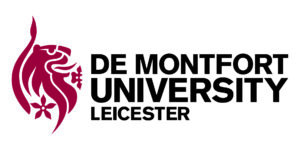Your Voice
Your Voice – De Montfort University

The latest Your Voice feature, giving LBV members a platform for their views on the current business landscape in Leicester.
Helen Donnellan is Director of Business Engagement at De Montfort University. Helen is part of the Business Services team, offering start-ups, small and medium-sized enterprises and large international businesses innovative and thought-provoking solutions to the challenges they face. This includes short courses to develop talent, student placements, graduate recruitment, research services and specialist facilities.
How can businesses benefit from working with DMU?
Businesses do not always think about contacting universities, whether it’s to talk over an idea or they are facing a challenge, and that is something we are working hard to change. If there was one message that I would like readers to take away from this it’s to get in touch with university commercial departments to see what support they offer.
Our core business is of course education, and we have several apprenticeship programmes, short courses, CPD training and we can also create bespoke courses for businesses in a variety of sectors. However, there is so much more that we can do for businesses whatever stage they are at.
We offer Knowledge Transfer Partnerships, which link businesses with an academic and a graduate to deliver a specific, strategic innovation project. The business gets help to improve processes and performance and the work is part-funded by Government.
In Leicester, 90% of businesses are SMEs and we are working with them to develop leadership and management skills through the Government-funded Help to Grow courses.
Universities are hotbeds of innovation, research and development. Our research brings huge benefits to business. A recent example was how we worked with the British Footwear Association which wanted to be able to advise its members on how coronavirus behaves on shoe leather. The research team tested anti-viral spray produced by Leicester company Micro-Fresh which rendered the virus inactive after two hours. Without treatment, it was possible to transmit the virus by contact for up to 48 hours.
What are the key strengths of Leicester?
- Community spirit – during the Covid-19 lockdown, there was a real sense of everyone pulling together and supporting each other to get through the longest lockdown in the UK. It is supportive.
- University expertise – DMU is one of three world-class universities in Leicester and Leicestershire and we all want to help businesses succeed and in doing so drive economic prosperity and growth.
- Diverse community – Leicester’s a vibrant, welcoming city and that’s something to be proud of. Our business community is so supportive and well-connected. I think we all share a pride in our city and want everyone else to feel the same way.
Three ways in which Leicester can support the business community
- Public transport options between the city centre and town centres are expensive and irregular, especially for shift work, making it still cheaper and more attractive to drive, if people have access to a car. Incentives should be explored to encourage a shift away from single-vehicle drivers in collaboration with larger employers.
- We have an opportunity to recreate what the city centre could be. As more and more people will likely split their week working from home and travelling to the office, do we really need our office space to remain the same or can we look at bringing people together for collaborative work, sharing space for training and development?
- Creating more space for independent shops in the city centre, perhaps through an indie pop-up season or offering reduced business rates
What are the biggest opportunities for businesses in Leicester right now?
The new Freeport offers an opportunity to bring in new high-skilled businesses to the region, but it’s important that everyone benefits and we find a way to encourage SMEs to be part of the story
We’re part of a £13m bid for a new Institute of Technology in Leicester and Leicestershire, alongside the University of Leicester, Brooksby Melton College, Leicester College and North Warwickshire and South Leicestershire College. This IoT will be able to provide fresh new talent with the skills businesses need
What are the biggest challenges?
The skills gap. Businesses need staff who have digital skills, or access to courses that will support them to upskill their workforce.
The recent report by the Leicester, Leicestershire Economic Partnership (LLEP) was very clear that digital literacy, skills transfer and training were critical for the city.
We also need to do more to make sure our graduates know that there are career opportunities here in Leicester. Our work with Leicester City Council and the University of Leicester on Leicester: Graduate City has shown that students think they have to move to London after they graduate and don’t appreciate the opportunities there are right here.









